Keywords: Britain
There are more than 200 results, only the first 200 are displayed here.
-

- Simon Caterson
- 02 April 2015
4 Comments
In contrast to the sectarian suspicion expressed by elements of non-Catholic Australia towards Melbourne’s Archbishop Daniel Mannix, who opposed military conscription during the First World War, his Perth contemporary Archbishop Patrick Clune was lauded during the war as ‘pro-war effort, pro-conscription, pro-empire and pro-crown’. Clune travelled from Perth all the way to the Western Front so as to minister to the Catholic soldiers sent there, and he enjoyed warm relations with Protestants and Jews.
READ MORE
-
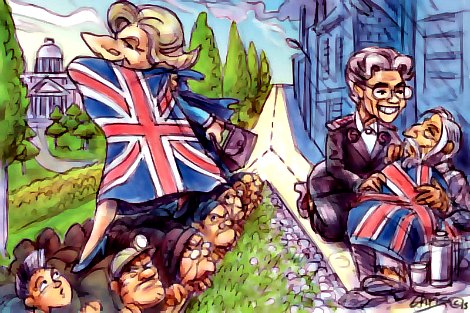
INTERNATIONAL
- Barry Gittins
- 01 April 2015
15 Comments
Former Australian Salvation Army world leader General Eva Burrows, who died on 20 March, tried in vain to engage the former British PM in making the preferential option for the poor. ‘Margaret Thatcher was a disappointment,’ the General said. ‘I felt she didn’t have a deep, true feeling for the poor. I invited her to come out on the soup run indirectly and said it wouldn’t be a media event, we’d go incognito, but the answer was no.’
READ MORE 
-
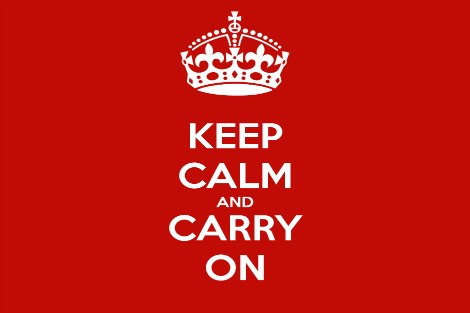
AUSTRALIA
- Tony Kevin
- 24 February 2015
29 Comments
On Monday, Tony Abbott made his finest speech as prime minister. Yet it was also scare-mongering, heavy handed and intimidatory. It reminded members of the Muslim Community that the Australian Government has the power to control and punish them. It may be a vote winner for a while, but for long term effect it’s worth contrasting it with the British Government’s successful calming messaging during the 1969-97 terror campaign.
READ MORE 
-
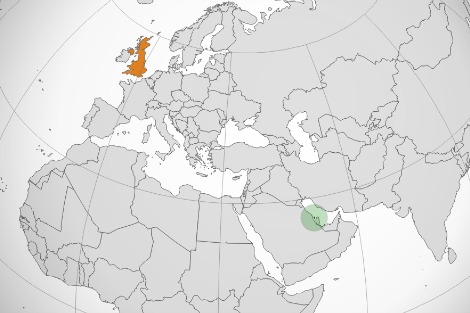
INTERNATIONAL
- Daniel Read
- 23 February 2015
1 Comment
Britain's recent drive to establish a naval base in Bahrain has only widened the rift between the UK's foreign policy and its respect for human rights. Bahrain will now potentially play host to a British military presence for the long-term, despite the Gulf state's brutal crackdown on pro-democracy protests over the past several years. This may be yet another instance of political expediency taking precedence over all else.
READ MORE 
-
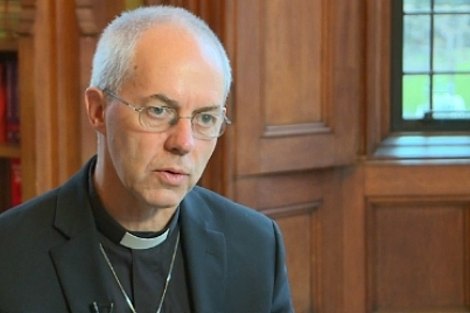
AUSTRALIA
- Michael Mullins
- 09 February 2015
8 Comments
As a former business executive, the Archbishop of Canterbury Justin Welby speaks with particular authority on economic issues. He has just given a landmark speech on the ‘Good Economy’ in which he stresses that everybody including the marginalised has a role to play. As our Coalition MPs undergo soul searching in order to reconnect with the Australian people, they might consider the virtues of a reduced pace of economic growth that has more universal benefit.
READ MORE 
-
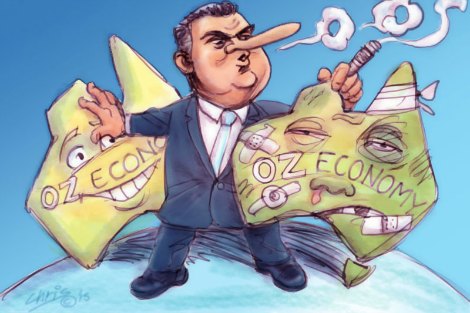
AUSTRALIA
- Colin Long
- 09 February 2015
19 Comments
The Coalition Government falsely claims that Medicare co-payments and cuts to welfare and publicly funded institutions such as the CSIRO and the ABC are necessary to 'fix Labor's mess'. There are indeed structural problems with the economy, but essentially the plan is to strip the public sector by cutting universal access to a range of services that also includes tertiary education, to create a dominant free market that marginalises Australians on low incomes.
READ MORE 
-
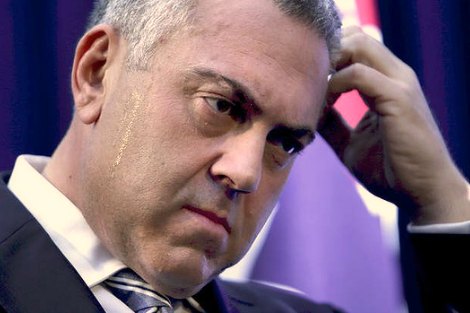
ECONOMICS
- David James
- 10 December 2014
12 Comments
One of the fascinating aspects of Australia's political pantomime is the manner in which the Federal Treasurer is forced to metamorphose into a used car salesman who is spruiking the Australian economy. One reason for the relative impotence of the Treasurer is that the Federal government only has control over fiscal policy. Monetary policy, the interest rate, is set by the Reserve Bank, not the government.
READ MORE 
-
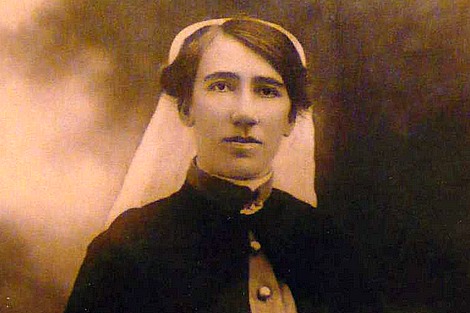
ARTS AND CULTURE
- Robyn Rowland
- 14 October 2014
8 Comments
Muriel Wakeford was stunned to see the ocean suddenly scarlet, a shoal of new-mown corpses that lay face-down in the sea. She saw what few steps most men managed before a grey hail began dropping them like insects sprayed.
READ MORE 
-
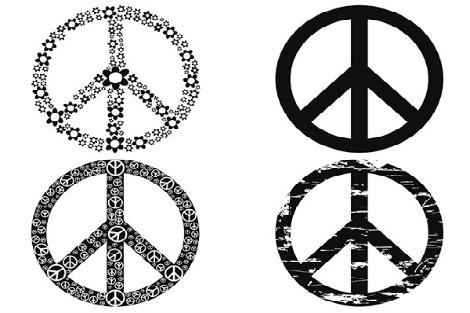
INTERNATIONAL
- Gillian Bouras
- 02 October 2014
11 Comments
I used to style myself a pacifist. Or hoped I was one. Or something. But that was before I had children. The minute I clapped eyes on my first-born, I realised that any threat to him would see me transformed into a murderous monster, and I later felt the same about his two brothers.
READ MORE 
-
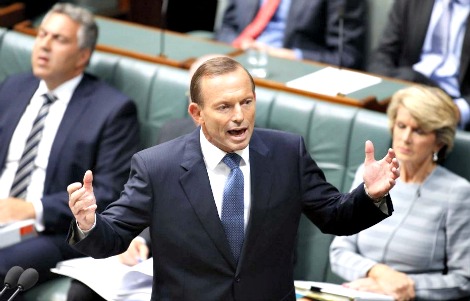
AUSTRALIA
- John Warhurst
- 30 September 2014
11 Comments
The difference between the approach by the British and Australian governments is striking. In Britain, Prime Minister Cameron, despite having a large majority, made the parliamentary debate in Westminster central, while in Australia Prime Minister Abbott spoke only of 'updating' the Parliament on his return from New York. There should be greater involvement by Parliament in Australia for reasons both of substance and symbolism.
READ MORE 
-
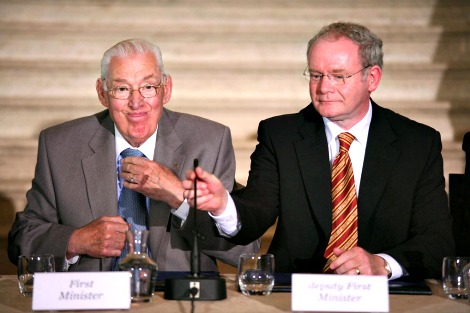
RELIGION
- Frank O'Shea
- 22 September 2014
6 Comments
Somehow Paisley and McGuinness worked well together. The Chuckle Brothers they were called, an attempt to present them as two buffoons out of their depth. But for ordinary people, it was an endearing image, a tribute to a pair who had brought their respective sides with them in an unlikely peace.
READ MORE 
-

INTERNATIONAL
- Duncan MacLaren
- 16 September 2014
31 Comments
Prime Minister Tony Abbott’s remarks on the Scottish independence debate were front page news in Great Britain. If Mr Abbott had actually visited Scotland rather than follow the advice of the British PM, he would have seen that the whole debate had centred on the kind of society we wanted – one where social justice is paramount, our National Health Service is not privatised and rights are built into a written constitution.
READ MORE 